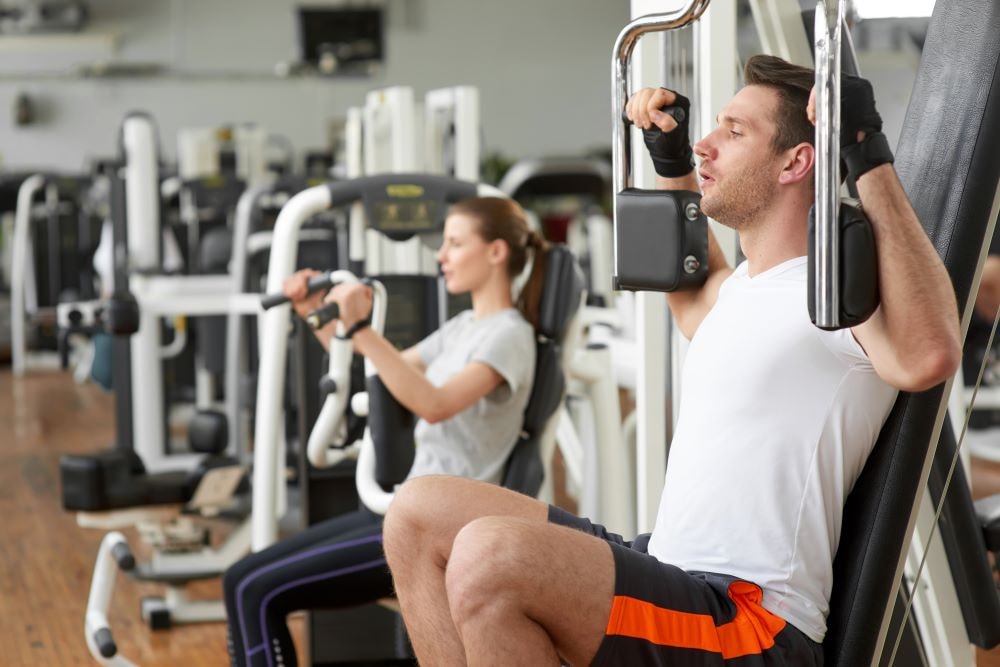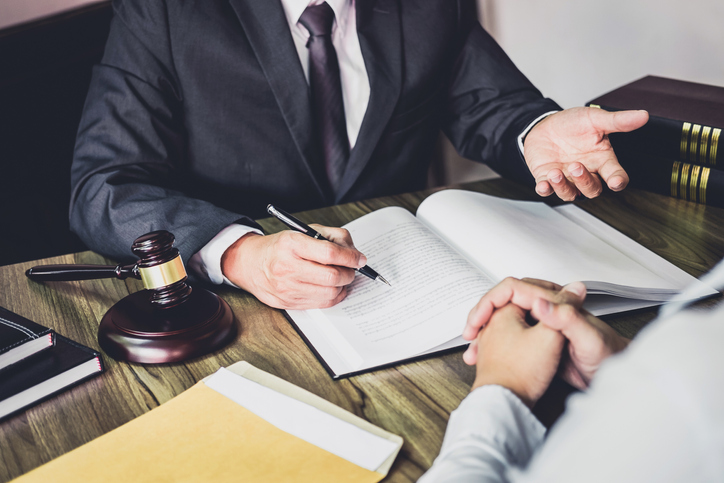
Have you ever wondered, “Can I sue a gym for injury?” It’s a question that many people have asked themselves after suffering an injury while working out. Gyms are meant to be places where we improve our health and fitness, but unfortunately, accidents can happen.
This can include a simple fall accident or faulty gym equipment but the gym owner is the one who should be responsible for it.
If you’ve been injured at a gym, you may be wondering what your legal options are and whether you can hold the gym responsible for your injuries. Knowing if you can sue the gym liable for such incidents can be a great help.
Let’s explore common causes of gym injuries, steps to take after suffering a gym injury, who may be liable for gym injuries, and how you can sue a gym for an injury from working out.
Common Causes of Gym Injuries
Gym can lead to severe injuries can happen for a variety of reasons. Some of the most common causes of gym injuries or how the injury occured include:
Faulty Equipment:
Defective or poorly maintained gym equipment can cause serious injuries. Malfunctioning treadmills, broken weights, or faulty cables on weight machines can all lead to accidents.
Lack of Proper Supervision:
In some cases, gym staff fail to properly supervise patrons, leading to accidents. For example, if a personal trainer fails to provide proper instruction on how to use equipment, it can result in injury.
Unsafe Conditions:
Wet floors, cluttered walkways, or poorly lit areas can create hazardous conditions in gyms, increasing the risk of slips, trips, and falls.
Overexertion:
Pushing yourself too hard or using too much weight can lead to overexertion and injuries like muscle strains or sprains.
Inadequate Maintenance:
Gyms have a duty to properly maintain their facilities, including keeping equipment in good working order and regularly inspecting the premises for hazards. Failure to do so can result in injuries to patrons.
Steps to Take After Suffering a Gym Injury
If you’ve been injured at a gym, it’s important to take the following steps to protect your health and your legal rights:
- Seek Medical Attention: Your health should be your top priority. Seek medical attention for your injuries, even if they seem minor at first.
- Report the Incident: Report the incident to gym staff as soon as possible. This creates a record of the accident and ensures that the gym is aware of the situation.
- Document Everything: Take photos of the scene of the accident, your injuries, and any equipment involved. Collect contact information from any witnesses to the accident.
- Keep Records: Keep track of all medical bills, receipts for any expenses related to your injury, and any time missed from work due to your injury.
- Consult with a Personal Injury Attorney: A knowledgeable personal injury attorney can help you understand your legal options and pursue fair compensation for your injuries.
Who’s Liable for Gym Injuries?
Determining liability for a gym injury can be complex and depends on the specific circumstances of the accident. In general, potential parties that may be held liable for gym injuries including:
- Gym Owners: Gym owners have a duty to ensure that their premises are safe for patrons. This includes properly maintaining equipment, addressing hazards, and providing adequate supervision.
- Staff: Personal trainers and other gym staff have a duty to provide proper instruction on how to use equipment safely and to supervise patrons to prevent accidents.
- Equipment Manufacturers: If a gym injury is caused by defective gym equipment, the manufacturer of the exercise equipment may be held liable for the injury.
- Third Parties: In some cases, liability for a gym injury may extend to third parties, such as maintenance companies responsible for cleaning the gym or contractors hired to repair equipment.
Can You Sue a Gym for an Injury from Working Out?
Yes, you can sue a gym for an injury from working out if you can establish that the gym was negligent in some way. To prove negligent security of atmosphere, you must demonstrate the following:
- Duty of Care: The gym had a duty of care to provide you with a safe environment for working out.
- Breach of Duty: The gym breached this duty by failing to take reasonable steps to ensure your safety.
- Causation: The gym’s breach of duty directly caused your injury.
- Damages: You suffered actual damages as a result of the injury.
When Can I Sue a Gym for Injury?
You can sue a gym for injury when you believe that the gym’s negligence led to your injuries. Examples of situations where you may have grounds for a lawsuit include:
- Slip and fall accidents due to wet floors or other hazards
- Injuries caused by malfunctioning equipment
- Accidents due to lack of supervision or improper instruction
- Injuries resulting from unsafe conditions in the gym
How Can I Sue a Gym for Injury?
If you decide to pursue legal action against a gym for your injuries, here are the steps you’ll need to take:
- Consult with a Personal Injury Attorney: Schedule a consultation with a personal injury attorney who has experience handling gym injury cases. They can evaluate your personal injury case and advise you on the best course of action.
- File a Lawsuit: Your attorney will help you file a lawsuit against the gym and any other parties responsible for your injuries.
- Discovery: During the discovery phase, both parties will gather evidence to support their case. This may involve exchanging documents, answering written questions, and giving depositions.
- Negotiation: Your attorney will attempt to negotiate a settlement with the gym’s insurance company. If a fair settlement cannot be reached, your case may go to trial.
- Trial: If your case goes to trial, a judge or jury will hear the evidence and decide whether the gym is liable for your injuries.
In short, you should know how to handle your personal injury case from start to finish if you wish to succeed.
Proving Negligence
Proving negligence in a gym injury case can be challenging, but with the help of an experienced personal injury lawyer, you can gather evidence to support your personal injury claim. This evidence may include:
- Witness statements
- Photos or videos of the accident scene
- Maintenance records for equipment
- Medical records documenting your injuries
- Expert testimony from professionals in relevant fields
Understanding Assumption of Risk
Many gyms require patrons to sign liability waivers as part of their membership agreements. These waivers typically include language stating that the patron assumes the risk of injury while using the gym facilities. While signing a waiver does limit your ability to sue the gyms or fitness centers for injuries that result from inherent risks of working out, it does not absolve the gym of liability for injuries caused by negligence.
Types of Liability Waivers That Gyms Use
Gyms use various types of liability waivers to protect themselves from lawsuits. These may include:
- General Waivers: These waivers broadly release the gym from liability for any injuries that may occur on the premises.
- Specific Waivers: Some gyms use waivers that specifically list the types of risks associated with working out and require patrons to acknowledge these risks.
- Informed Consent Waivers: These waivers require patrons to acknowledge that they understand the risks of working out and voluntarily assume those risks.
How to Overcome a Waiver of Liability
While waivers of liability can make it more challenging to sue a gym for injuries, they are not necessarily ironclad. Ways to overcome a waiver of liability include:
- Proving Gross Negligence: If you can prove that the gym’s actions constituted gross negligence, you may be able to overcome a waiver of liability.
- Showing the Waiver Was Not Clearly Presented: If the waiver was buried in the fine print of a contract or not clearly presented to you, you may be able to argue that it is not enforceable.
- Demonstrating Fraud or Duress: If you were coerced into signing the waiver under duress or if the gym or fitness center misrepresented the nature of the waiver, it may not be enforceable.
Safety Measures to Prevent Gym Injuries
While accidents can happen, there are steps that gyms can take to reduce the risk of injuries to patrons. These include:
- Proper Equipment Maintenance: Regularly inspecting and maintaining equipment to ensure it is in good working order.
- Safety Education: Providing patrons with proper instruction on how to use equipment safely.
- Supervision: Ensuring that qualified staff are present to supervise patrons and provide assistance when needed.
- Cleanliness: Keeping the gym clean and free of hazards such as wet floors or cluttered walkways.
Seeking Damages
If you’ve been injured at a gym due to someone else’s negligence, you may be entitled to compensation for:
- Medical expenses
- Lost wages
- Pain and suffering
- Disability or disfigurement
- Reduced earning capacity
An experienced personal injury attorney can help you pursue fair compensation for your injuries and hold the responsible parties accountable.
How an Attorney Can Help You in a Gym Injury Case
Dealing with a gym injury can be physically, emotionally, and financially challenging. When facing such a situation, it’s essential to understand how a knowledgeable attorney can assist you in navigating the legal complexities and securing the compensation you deserve.
- Understanding of Laws and Regulations: Personal injury lawyers are well-versed in the laws and regulations governing premises liability and negligence. They can help you understand your rights and the legal options available to you.
- Case Assessment: An attorney can assess the strength of your case and advise you on whether you have grounds for a lawsuit against the gym.
- Gathering Evidence: Attorneys have the resources and expertise to thoroughly investigate your case. They can gather evidence such as witness statements, photos, medical records, and maintenance logs to support your claim.
- Settlement Negotiation: Attorneys are skilled negotiators who can engage in settlement negotiations with the gym’s insurance company on your behalf. They will work to achieve a fair settlement that compensates you for your injuries and other losses.
- Maximizing Compensation: Your attorney will fight for maximum compensation, taking into account factors such as medical expenses, lost wages, pain and suffering, and future medical needs.
- Litigation Experience: If a fair settlement cannot be reached, your attorney will be prepared to take your case to trial. They will represent you in court, presenting evidence and arguments to support your claim.

Transform Your Gym Injury into Fair Compensation with BLG
While gyms can be great places to improve your health and fitness, accidents can happen. If you’ve been injured at a gym due to someone else’s negligence, you have the right to seek compensation for your injuries.
If you have been injured at a gym, don’t hesitate to reach out to our law firm for a free consultation. We’re here to help you navigate the legal process and recover the compensation you deserve.
Don’t let a gym injury hold you back. At BLG, we’re here to help you fight for the compensation you deserve. Our experienced team of personal injury attorneys will work tirelessly to protect your rights and get you the fair compensation you deserve.
Contact us today for a free consultation.




